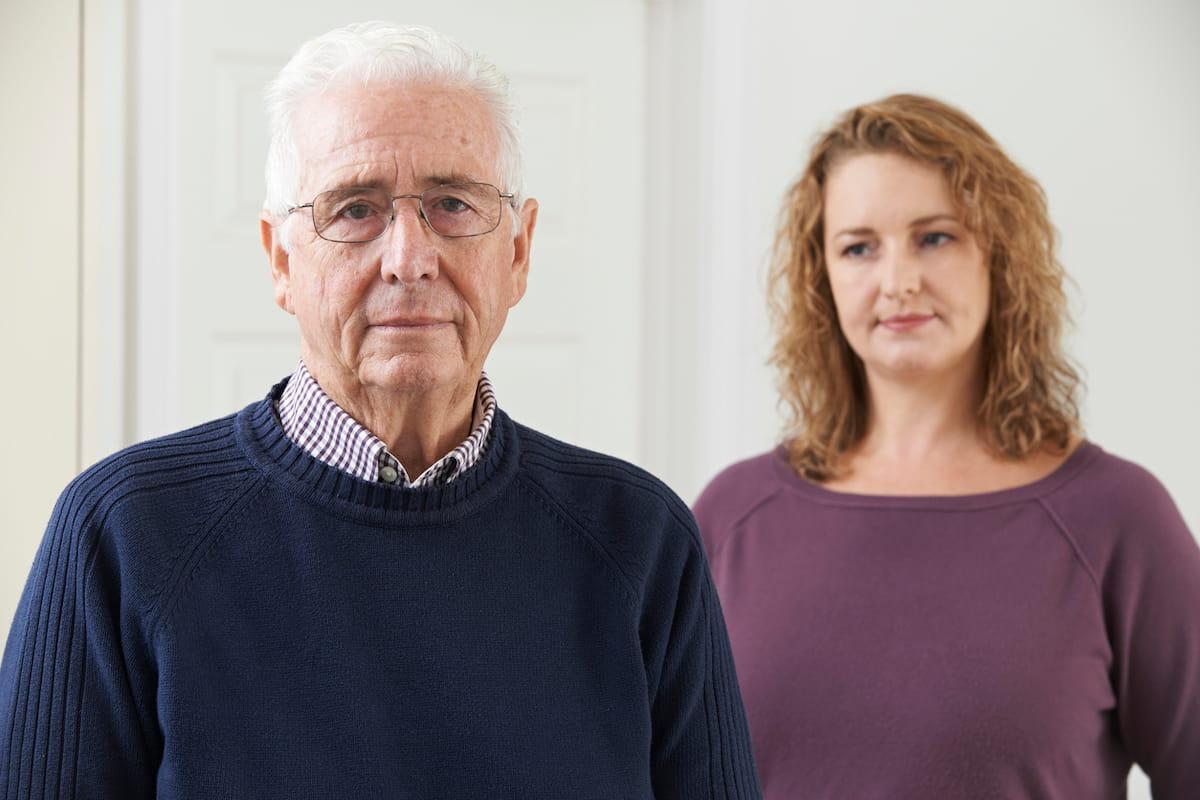Face your fears about dementia diagnosis
Addressing common fears and concerns people have about a dementia diagnosis.

Some people have fears, concerns or worries about seeking a dementia diagnosis – either for themselves or their loved one. Here is some information that addresses common fears.
There are treatments and supports for dementia
“I’m worried that nothing can be done for dementia.”
Because there is no cure for dementia, you might believe that nothing can be done for you or your loved one. But scientific understanding about dementia is increasing every day. A lot can be done to help slow the progress of dementia and help people to better manage the changes and live well with dementia regardless of their age or stage.
This includes:
- New medication and improved management of existing medications
- Brain training
- Cognitive stimulation therapy
- Cognitive rehabilitation
- Learning strategies and getting supports to live well.
Read more about managing symptoms of dementia on the Forward with Dementia website.
Being proactive about diagnosis can lead to better outcomes
“If I ignore the changes, things might just get better.”
Facing significant life changes is tough, and it can feel easier to avoid or deny changes than to ask a GP. However, changes usually do not go away on their own, and undiagnosed dementia might lead to more difficulties (e.g. unpaid bills, un-taken medication). Taking proactive steps to get assessed can lead to better outcomes.
The earlier dementia is diagnosed, the more time you have to get the benefits of a dementia diagnosis including:
- Dementia medications
- Rehabilitation and other therapies
- Emotional and psychological support
- Post-diagnostic support
- Make positive changes to slow progression
- Plan ahead
- Get support at work.
Talking about dementia often gets you support
“I don’t know how to have the difficult conversations about dementia.”
It can be embarrassing talking to a GP or family about changes and difficulties you might be experiencing, and uncomfortable telling someone about changes you have noticed in them. Talking about dementia is the first step to getting support, assessment and treatment.
Planning for these conversations can help:
If you do receive a diagnosis, you might also feel worried about telling others about your diagnosis. It is your decision when, who and how to tell others about your diagnosis. The Forward with Dementia website has resources that can help you to share your diagnosis, your way.
Facing fear and anxiety
“I’m scared about what a diagnosis of dementia might mean for my life.”
You may worry that a diagnosis will be distressing. Whilst this true for many people, they also sometimes feel relief. Getting a diagnosis can be a positive step towards understanding the changes you have been experiencing and to moving forward with dementia.
If you need support to adjust to the diagnosis Dementia Australia offers free one-on-one counselling and support as well as group education and support programs. A GP can also arrange a Mental Health Plan, with up to 20 subsidised visits to a psychologist or counsellor to help manage anxiety and/ or depression.
A diagnosis helps you stay independent and in control
“I’m terrified of losing my independence and going into a nursing home.”
You may fear that a dementia diagnosis will lead you or your loved one to lose their independence. It is the symptoms of dementia that interferes with independence, not the diagnosis. More than two thirds of people with dementia live in the community. A diagnosis does not automatically mean you will be placed into care. People with dementia can do a lot for themselves and for others. Getting help (e.g. cleaning or transport) does not mean that we have lost control of our lives. Read stories of people living well with dementia.
Facing discrimination through assertiveness and advocacy
“I’m worried that I’m going to be discriminated against because I have dementia”
Some people with dementia find that they are treated differently because they have dementia. However, things are improving and there is a strong movement to reduce dementia stigma.
When you are assertive and advocate for yourself or your loved one around dementia, you are playing your part in reducing dementia stigma and discrimination. Dementia is a chronic disease like diabetes or arthritis. People with dementia have the same rights to treatment and respect as others using health services.